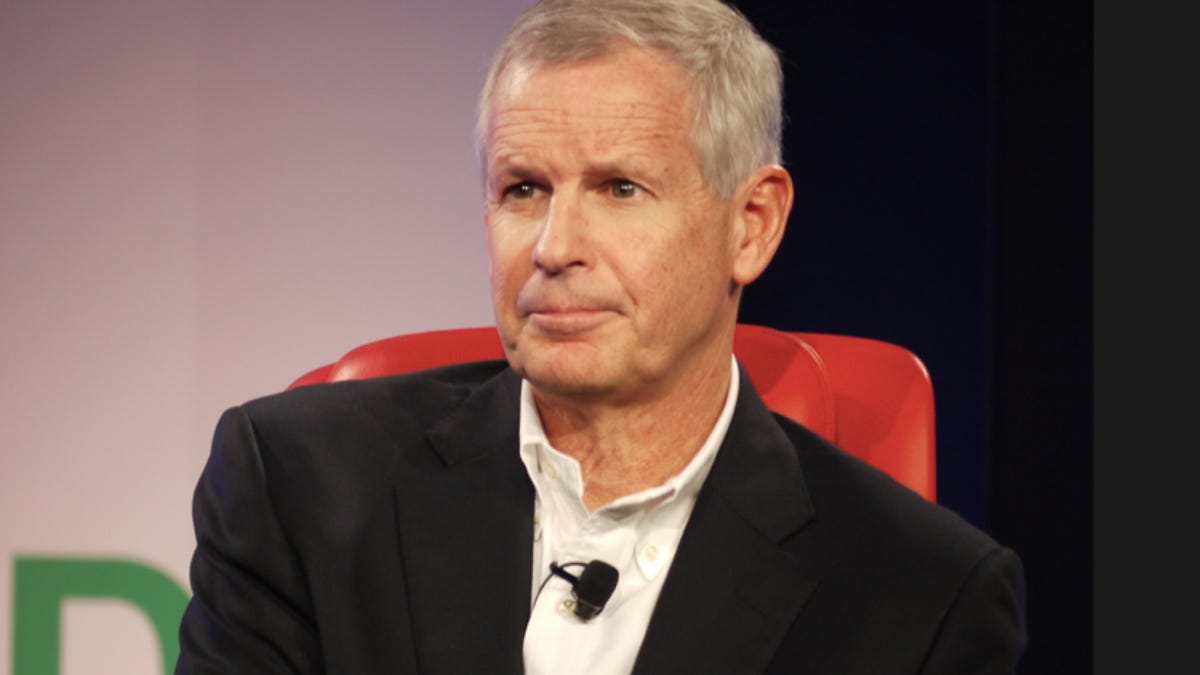Dish Chairman Charlie Ergen: 'I don't want to kill ads'
Ergen says he wants to change the way ads are delivered to consumers, giving viewers a choice of ads so they can be better targeted.

DANA POINT, Calif.--You might think that Dish Network Chairman Charlie Ergen wants to kill TV advertising. With the introduction of the Dish Hopper with Sling HD DVR nationwide this week, the company ironically launched a new series of commercials to promote the latest version of its ad-skipping product.
In one commercial, the "Boston guys" sit on a couch paying their last respects to commercials. "Now that we have the Hopper, we can watch commercial-free TV," they said. "Commercials are out of our lives."
Granted, viewers keep the fast-forward button handy to skip ads on their DVR, but automating the process has forced the broadcast networks to take up arms against Dish's AutoHop feature.
CBS Corp., parent company of CNET, NBC (Comcast), ABC (Disney), and Fox (News Corp.) have all filed suits against Dish.
In a brief on January 31, Fox accused Dish of breaching its contract by creating an ad-free copy of Fox's content:
Dish did not "create commercial free TV." Fox has been offering VOD and commercial-free TV to consumers for years. Instead, Dish created a competing, premium, VOD service that Dish's top executive boasted would make licensed services like Hulu obsolete, and that threatens the ad-supported broadcast television ecosystem. Contrived legal argument to avoid abiding by conditions in a license agreement is not innovation.
But Ergen maintains that he really doesn't want to kill TV ads, he just wants to change the way ads are delivered to consumers.
In conversation with Peter Kafka at the All Things D Dive into Media conference here, Ergen was asked about the new ads.
"It's not an ad that the networks are going to run. It's our team having a little bit of fun," he said. "I don't want to kill ads. I think advertising is great. I am very aware of the multiple revenue stream in television, subscription and advertising. But I also don't want to put my head in the sand. As an example, Hulu did a good job. You can pick an ad that is relevant to you. With the Hopper, we have technology that allows you to pick an ad relevant to you. But the broadcast industry is slow to adapt to that.
"We have the ability to skip commercials, so it makes sense to give more targeted, meaningful, and fewer commercials, and they can make more money," he said, adding as an example, "A single mom may not need the testosterone ad that runs time and time again. She may want something about fashion," Ergen said.
In pursuit of that "smarter Hopper" mission, Ergen wants to compete with the cable and wireless providers to offer a complete set of services inside and outside the home, and to use all the data to target customers with ads. Dish has tried to acquire DirectTV to expand its satellite footprint and has been trying to acquire wireless spectrum from Clearwire. So far, he has struck out.
In its own suit against the broadcast networks, Dish claims that the AutoHop feature doesn't infringe copyright because the technology doesn't alter the broadcast signal since the ads are not deleted from the recording.
It appears that Ergen is less focused on killing advertising than taking a piece of that action. "They [broadcasters] are trying to run their business and do right things for their shareholders. I am trying to explain to them how to make more money, not less," Ergen said. But, in its marketing, Dish talks about skipping ads, not about reframing how the $60 billion per year in TV ads are delivered.
"The lawsuits will ultimately decide the fate of commercials. If the broadcasters win on their claims, it would outlaw the DVR," Ergen said. That may be an exaggeration, but it wouldn't stop Ergen from trying to upend the delivery of TV services. "I believe it's less risky to embrace change...you can lead it and make the rules or be a fast follower or slow follower and pay more to catch up."

